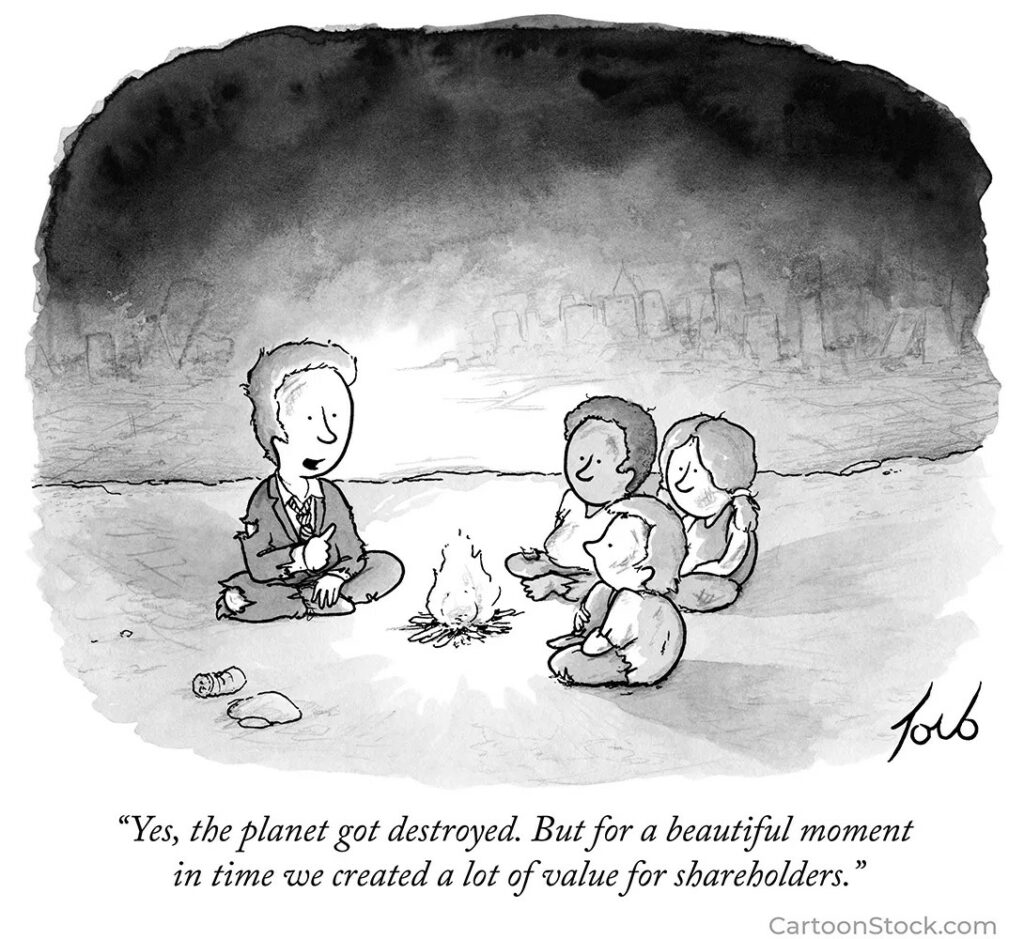Welcome to Good Market Info! Click the logo to go to the directory and marketplace
Good Market Info > About > Enterprises
The Good Market commons is for enterprises that prioritize people and planet over profit maximization.
The original meaning of enterprise is an undertaking, working together for a purpose. The word enterprise is used to include informal voluntary initiatives, unregistered startups, mutual aid groups, non-profit organizations, cooperatives, registered companies, networks of enterprises, and other initiatives.
Our economy is a human system. It’s based on stories and social rules that we create, and these stories and rules can change over time. The enterprises that use the Good Market commons are cocreating a new story.


According to today’s dominant economic story, businesses exist to maximize profits for private shareholders, and they are expected to grow these profits at exponential rates.
Social and environmental initiatives can be justified if they attract customers or workers, but the underlying priority is financial returns. There is an expectation of “shareholder primacy,” which means shareholders come first in all decisions.
When profits and growth are prioritized over people and the planet, the negative social and environmental consequences are devastating.
The solution, according to our current story, is to redistribute a fraction of these profits through government, private philanthropy, and nonprofit charities. The underlying assumptions about profit maximization and growth aren’t questioned.
The Good Market commons is for enterprises that question “business as usual” and choose to prioritize people and planet over profit maximization. While they are all part of the broader movement, they can operate according to very different models.
Responsible businesses consider people and planet in decision-making. Instead of solely focusing on shareholders, they value and prioritize other stakeholders like workers, customers, suppliers, communities, and the environment. Most choose to reinvest a portion of profits towards specific social or environmental causes.
The founders of these businesses usually have a strong commitment to a social or environmental cause, but it can be difficult to maintain that focus over time. Economic downturns, changes in management or ownership, and investor pressure can lead to mission drift and a watering down of socially and environmentally responsible practices.
Names and Networks
Responsible businesses, impact businesses, sustainable businesses, common good companies, triple bottom line companies, benefit corporations, conscious capitalism
Contribution to Systems Change
Responsible businesses change the narrative by demonstrating an alternative to shareholder primacy. They raise the bar for existing businesses and accelerate the transition to socially and environmentally responsible practices. This buys time while we work towards a deeper transition.
Social enterprises go beyond considering stakeholders. They put people and planet first. They exist to solve social and environmental problems. This means they prioritize purpose, people, and planet over profit in operational decisions, and they actively embed and protect their purpose in their enterprise design. Social enterprises use self-sustaining revenue models and generate profits, but they reinvest the majority of any surplus towards their purpose.
This enterprise model exists under different names and legal structures around the world, but it has deep roots in indigenous and traditional communities that self-organize to manage resources and solve shared challenges. The greatest energy and innovation tends to come from communities that have benefitted the least from the dominant economic system.
Names and Networks
Social enterprises, fair trade enterprises, cooperatives, mutualist organizations, post-growth enterprises, earned-income nonprofits, not-for-profit businesses, social businesses, regenerative businesses
Contribution to Systems Change
Social enterprises are operating out of a new economic paradigm that is regenerative and distributive by design. Embedding purpose in ownership, governance, and finance enables them to unlock social and environmental solutions that are not possible within business structures that require private profit and continuous growth.
The challenges we face are too big for any single organization or network. Climate change, biodiversity loss, rising inequality, political instability, and a growing distrust in public institutions all shorten the runway for an economic transition.
When we work in isolation, it slows our progress and increases the risk of cooptation, but when we recognize and value the strengths of different parts of the movement, it opens new leverage points and opportunities for collective action. We can work together to change narratives, social norms, and system level rules.